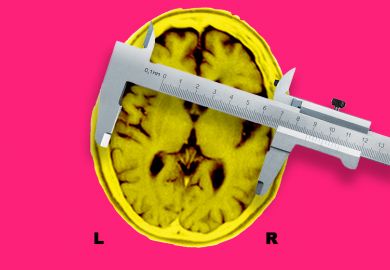In a recent talk at the launch of the new Committee for Academic Freedom, philosopher Kathleen Stock recalled research seminars at the universities of St Andrews and Leeds in the 1990s, in which faculty would continuously search for weak points in arguments and not hesitate to raise these during questions following the seminar, often in a biting fashion.
Since the 2010s, as Stock noted, there has been a marked turn away from this gladiatorial style of debate, a move driven in part by feminist activists, who argued that such an atmosphere deterred women from participation. From this came new codes of conduct for academic events, from organisations as varied as the American Society for Aesthetics, the King’s College London department of war studies and the Imperial College Astrophysics Group.
Some such recommendations are eminently reasonable, entailing avoidance of ad hominem attacks, sustained disruption of events and anything relating to the identity of the participants (although, in my experience, such guidelines are followed very selectively). But other guidelines, relating to undefined concepts of harassment, power dynamics and offence, can deter robust interrogation of scholarly material.
Stock expressed regret for the decline of the older, “scathing” debating style, which featured a “magnificent contempt for stupid ideas”. More common today are insipid responses such as: “That’s really interesting: could you say a bit more about it?” I am very familiar with the latter, having seen highly contentious and contestable views (especially on charged issues such as the Russia-Ukraine war or the situation in Israel/Palestine) met mostly with sage nodding or silence, an artificial “respect” which really amounts to disengagement. It is hard to imagine even the charged but brilliant 2010 back-and-forth between historians Richard J. Evans and Timothy Snyder occurring today, even though the exchange brought to the fore major methodological and historiographical questions.
I have written many book reviews and peer reviews, some highly positive and others markedly critical, but all focused on the texts in question. My criticisms often relate to unsubstantiated or falsifiable assertions, logical fallacies, lack of awareness of relevant scholarship, or insufficient critical engagement with highly subjective or contested arguments, testimonies or positions. But where the work may be salvageable, I attempt to give details of what is required, even when extensive.
No one likes getting bad reviews, but personal disappointment should not be taken as an indictment of the whole approach. The author of one book I reviewed negatively later argued that they hoped such reviews would not be published today. Such a possibility concerns me as I believe it could undermine fundamental aspects of scholarly culture.
Both peer review and published review serve a vital self-regulatory role for scholarship. If an academic’s arguments, reasoning or use of data are open to challenge, so the argument goes, another scholar will provide the appropriate critique, nuancing, supplementing and enhancing the relevant body of discourse. This idealistic model is inevitably tempered by other power dynamics, particularly those affecting young or precariously employed academics. But it should not be unthinkable that senior figures could respect the right of juniors to participate in the process in such a manner.
Without negative reviews or feedback, positive reviews lose their significance. No work can be viewed as remarkable unless it can be contrasted with other work of lesser value. There are qualities to be discerned in vital scholarly writing, as distinct from that designed for other purposes; without any sense of these, or mechanisms for ensuring they are sustained, the justifications for financial and other support for scholarly endeavour become undermined.
Stock maintains that “terrible ideas” are found most often in areas of the humanities with less methodological consensus than the sciences. Among those I believe to be especially problematic are forms of ethnography or autoethnography, where the distinction is blurred between journalistic description and scholarly analysis, and writing on various types of living artistic practitioners, where too-close relationships between the scholar and their subject or milieu can result in hagiographic treatment. Practitioner-scholars sometimes lack a background in broader critical enquiry and can interpret critical responses to their practice-research in an over-personalised manner.
Beyond this, highly politicised disciplines have sometimes adopted methods designed specifically to exclude critical enquiry, such as standpoint epistemology, or other approaches in which “lived experience” is assigned a quasi-axiomatic role. This is in sharp contrast with, say, areas of Holocaust scholarship, in which major scholars such as Christopher Browning have examined the veracity and accuracy of survivor testimony.
More widely across disciplines, important and multifaceted concepts such as “social justice” are often voided of a clear definition, as sociologist Bradley Campbell has argued in a recent book, and become proxies for adherence to a particular political ideology. Such an academic culture, in which political allegiance matters more than intellectual rigour, makes possible scholarly hoaxes, such as the Sokal and the later “grievance studies” affairs.
Those who shy away from proper academic criticism of bad ideas and methods risk stripping good scholarship of meaning. And scholarship without meaning is ultimately scholarship without value.
Ian Pace is professor of music, culture and society at City, University of London, and convenor of a debate there on 20 March on “Truth, Knowledge and Social Justice”, with guests Alan Sokal and Helen Pluckrose. He writes here in a personal capacity.
Register to continue
Why register?
- Registration is free and only takes a moment
- Once registered, you can read 3 articles a month
- Sign up for our newsletter
Subscribe
Or subscribe for unlimited access to:
- Unlimited access to news, views, insights & reviews
- Digital editions
- Digital access to THE’s university and college rankings analysis
Already registered or a current subscriber?








